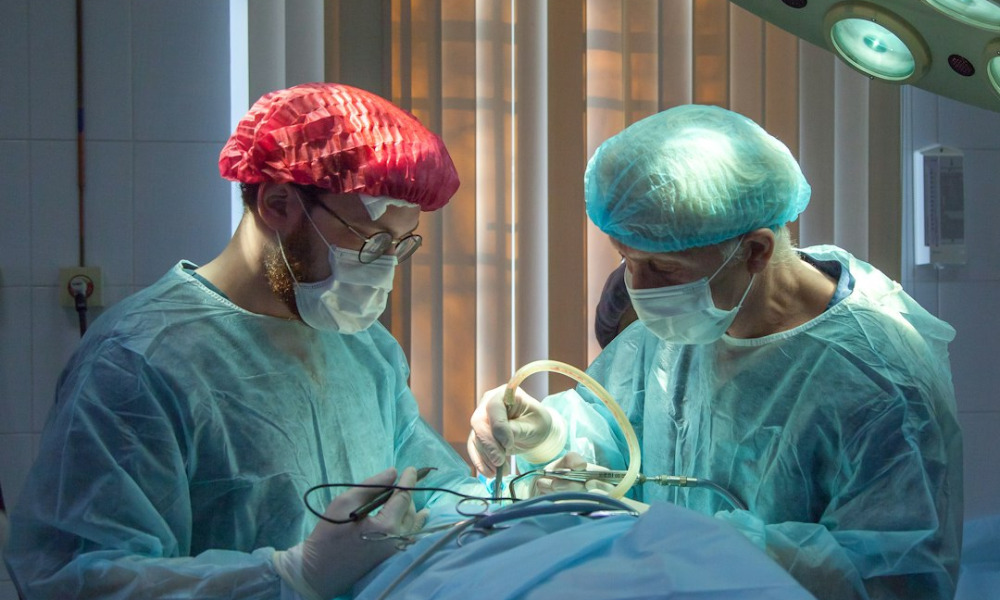
Over 50% of Patients Regret Cheap Surgery Abroad
An alarming new study presented at the British Association of Aesthetic Plastic Surgeons (BAAPS) annual conference has revealed that more than half of individuals who seek cosmetic surgery abroad end up regretting their decision. As cosmetic tourism grows in popularity, this research highlights the serious risks and potential hidden costs associated with pursuing cheaper procedures overseas.
The study, led by BAAPS Hackett Memorial Prize winner Theodore Pezas and conducted by a team at St Thomas’ Hospital, London, examined a decade of patient experiences with complications from overseas cosmetic procedures. The findings shed light on the most common surgeries, complications, and reasons why patients are drawn to cheaper alternatives abroad—primarily citing lower costs as the main motivator.
The Cost Factor: Why Patients Go Abroad
The study found that 83% of patients who opted for cosmetic surgery abroad did so because of the significantly lower costs. Procedures in destinations like Turkey, which has become a hotspot for medical tourism, often appear attractive due to the promise of high-quality surgeries at a fraction of UK prices. Over half of the surveyed patients paid less than £5,000, which included surgery, travel, and accommodation.
However, while the initial savings might seem appealing, the study suggests that these cost benefits can be outweighed by unexpected complications, additional expenses, and emotional strain post-surgery.
Regret and Complications: A Costly Gamble
One of the most striking findings from the research is that 66% of patients reported they would not choose to undergo the same procedure abroad again. Nearly half expressed outright regret, indicating that the perceived savings are often not worth the risks involved.
The study reviewed the cases of 103 patients who required emergency care in the UK after undergoing surgery abroad. Among the common procedures were tummy tucks (abdominoplasty), breast augmentations, and liposuction. Complications arising from these surgeries included:
- Wound issues – 33% of cases
- Seroma (fluid build-up under the skin) – 29.1%
- Infections – among the most frequent complications encountered
These complications often necessitate emergency care, adding unforeseen financial, physical, and emotional costs to the patients. In many cases, these patients had to return to the UK urgently, requiring further surgery or treatment to address the complications.
Lack of Aftercare: A Critical Gap
The research highlights a significant problem with cosmetic tourism: insufficient post-operative care. The study found that while many overseas clinics offer competitive rates for surgeries, they may fall short on post-surgery follow-ups, leaving patients vulnerable to complications. This gap in care can be particularly challenging for UK patients, who may find it difficult or expensive to return to the original clinic for follow-up treatment or revisions.
BAAPS President Nora Nugent stressed the need for public awareness: “This research offers crucial insights that must inform future public health campaigns. Potential patients need to understand the risks involved with travelling abroad for cosmetic surgery, beyond just the financial savings.”
Nugent’s statement highlights the critical role of aftercare in cosmetic procedures, something that may be insufficiently covered in foreign clinics, particularly those that advertise budget-friendly options.
A Surge in Demand: Why Cosmetic Tourism is Rising
Cosmetic tourism has seen rapid growth in recent years. Advances in surgical techniques and affordable flights have made it easier for patients to travel for elective procedures. Additionally, the appeal of “surgery holidays,” where patients combine procedures with a stay in a foreign country, has fuelled interest in destinations like Turkey, Brazil, and Thailand.
Social media has also played a part, with influencers and celebrities endorsing clinics abroad, making the idea of an affordable cosmetic enhancement seem both desirable and attainable. However, as this study shows, the allure of a bargain may not be worth the trade-off in health risks and potential complications.
Expert Warnings: Weighing the Risks of Cosmetic Tourism
Theodore Pezas, the study’s lead researcher and the 2024 BAAPS Hackett Memorial Prize recipient, spoke about the broader implications of cosmetic tourism. He explained that while many overseas clinics maintain high standards and employ qualified surgeons, there are still inconsistencies in regulation and aftercare provision.
“The purpose of this study was to better understand the patient experience of cosmetic tourism in cases where surgery has resulted in complications requiring emergency management,” Pezas said. “Whilst no surgery is risk-free and the majority of qualified plastic surgeons performing cosmetic surgery abroad do so to a very high standard, what is not always comparable is the way in which certain procedures are offered and regulated. The practice of cosmetic tourism may seem like a cheap alternative but can facilitate an inadequate provision of post-operative care which leaves patients worse off and comes at a cost to us all.”
Pezas’ comments underscore the need for prospective patients to carefully consider not only the price of the procedure but also the reliability of follow-up care and the regulatory standards of the clinics they choose.
Popular Procedures and Their Risks
The study identified some of the most common procedures sought by patients going abroad, each carrying its own set of risks:
- Abdominoplasty (Tummy Tucks) – Often intended to tighten and reshape the abdomen, this surgery accounted for 28.1% of the cases reviewed in the study. Tummy tucks are invasive procedures with a higher risk of infection and wound complications.
- Breast Augmentation – Making up 17% of cases, breast augmentation can lead to issues such as implant shifting, rupture, or infection if not performed to high standards or without appropriate aftercare.
- Liposuction – Comprising 13.1% of cases, liposuction carries risks of infection, seroma, and damage to surrounding tissue. Liposuction patients may require draining of fluid build-ups or corrective surgery if results are uneven.
These complications illustrate the importance of choosing a reputable surgeon and facility, particularly given the physical demands of cosmetic procedures and the need for recovery support.
Health and Financial Costs Beyond Surgery
Aside from the immediate health risks, the financial burden of addressing complications can be substantial. The NHS often provides emergency care for patients returning with complications from overseas surgeries, but this comes at a significant cost to the public health system. The study’s findings suggest that budget-conscious patients should take these potential expenses into account, as a cheap surgery abroad can lead to high costs at home in terms of both healthcare and personal distress.
For patients who do end up needing revisions or corrective procedures, the added financial burden can quickly negate any initial savings. Some patients reported needing multiple corrective surgeries, adding thousands of pounds in costs that they had not anticipated.
BAAPS’ Recommendations: How to Make an Informed Decision
In light of these findings, BAAPS is advocating for increased public education on the risks of cosmetic tourism. Prospective patients are advised to:
- Research Thoroughly – Ensure the clinic is reputable and that the surgeons are certified by a recognised board.
- Verify Aftercare – Check if the clinic offers a clear post-operative care plan and accessible follow-up options.
- Understand the Regulations – Be aware that medical regulations vary widely between countries, affecting the quality and safety standards of procedures.
- Consult a UK Surgeon First – Discuss the risks with a qualified surgeon in the UK to ensure you have a full understanding of the procedure and potential complications.
Nugent of BAAPS emphasised the need for these precautions. “Patients need to be aware that what might look like an affordable option can come with hidden costs and substantial risks. It is our responsibility to raise awareness and ensure the public understands the importance of safety over savings.”
A Wake-Up Call for the Public
As cosmetic tourism continues to grow, the study from St Thomas’ Hospital serves as a critical warning for those considering going abroad for cheaper cosmetic procedures. While many clinics abroad offer competitive rates and attractive packages, the price of these savings can be steep if complications arise. The study underscores that, in many cases, the “cheap” option can lead to unforeseen expenses, emotional turmoil, and lasting physical consequences.
Ultimately, the choice to undergo cosmetic surgery abroad should be made with careful consideration of all risks involved, including post-surgical care and long-term health impacts. The findings serve as a reminder that quality, safety, and aftercare are worth the investment, ensuring that cosmetic enhancement remains a positive, empowering choice rather than a regrettable experience.
For more information and professional guidance on cosmetic surgery, visit the BAAPS website and consult a certified UK-based surgeon before making any decisions.


